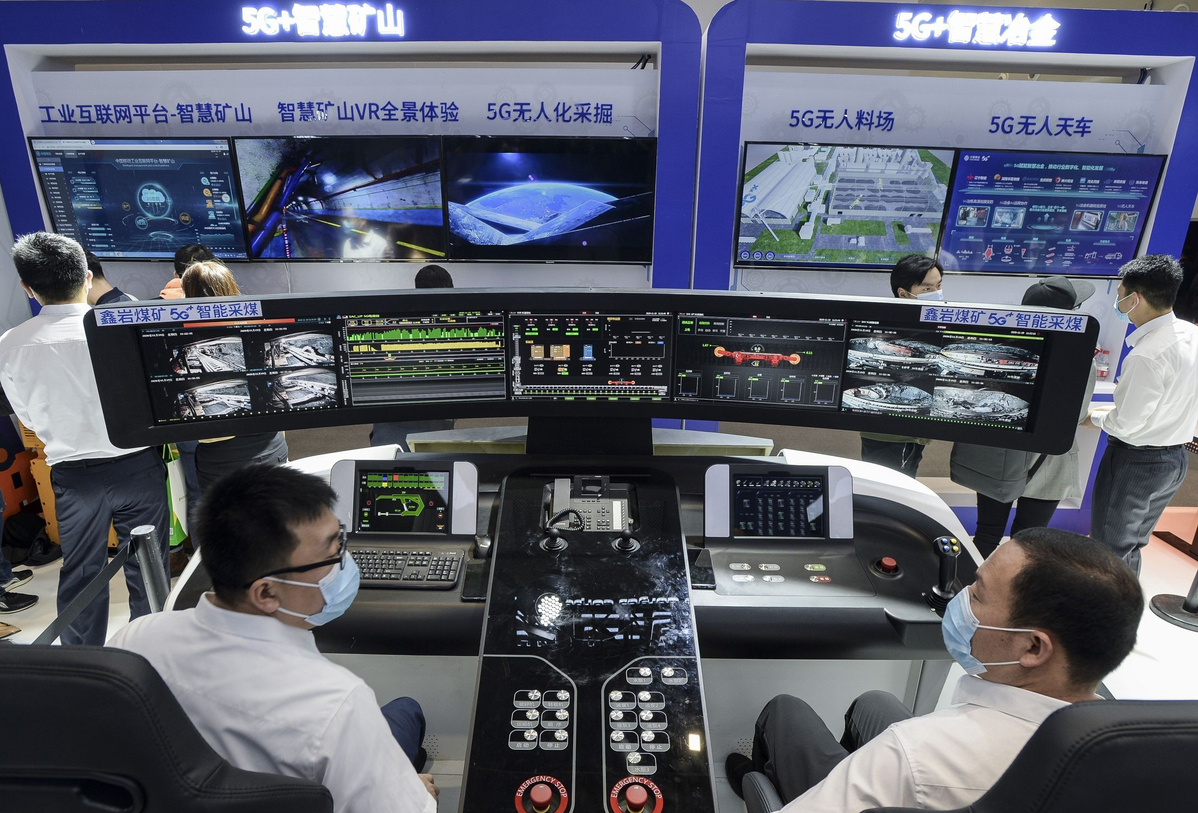
Executives say businesses need to adapt telecom solution to their specific needs
A concerted push by mobile operators, industry participants and telecom equipment manufacturers is needed to widen the industrial applications of 5G, the latest telecommunications technology, experts and company executives said.
Such a combined effort, they said, will help quicken the digital transformation of a variety of sectors.
Denis Depoux, global managing director at Roland Berger, a management consultancy, said one of the difficulties in promoting 5G among businesses is that each company's or sector's specific needs require 5G customization to demonstrate the technology's value.
"Who is doing that work? 5G equipment manufacturers certainly have ideas but their key role is to push the technology. Therefore, they cannot imagine what every type of industry across the world will do with their technology," Depoux said.
Technology meeting actual people in different sectors-that is what is needed to figure their needs in the context of their business models, so that traditional industries can improve what they are doing, boost efficiency or cut costs, he said.
"Telecom equipment manufacturers cannot do everything. Mobile operators are the key because they are at the interface of customers and the technology and it is their key responsibility to work with their clients in mining, construction, hospitals and manufacturing to figure out the business models."
Businesses are a potentially bigger market for 5G than the consumer market, considering what the industrial internet of things can deliver in the future.
The combination of 5G's low latency and ability to deal with vast volumes of data can quickly empower cutting-edge applications, he said.
"But the application of 5G is different for each industry and varies within an industry. Moreover, every company has different demands," Depoux said. "There is a lot of joint work to be done by mobile operators, industry participants and telecom equipment manufacturers among others."
Hou Mingjuan, vice-president of US chip giant Qualcomm, said: "There's also now a much broader understanding of the potential of 5G to not only keep us connected, but also digitize society and the economy. Unlike previous generations, the concept of 'users' will be much broader in 5G era."
Hou said 5G will make driving smarter and safer, communications between doctors and patients more convenient and factories more intelligent. "It will extend the benefits of connectivity to more people and businesses, and ultimately transform the global economy and enrich our lives."
She further said China has already pursued a strategic and comprehensive rollout of 5G. And 5G is among the highlights of China's 14th Five-Year Plan (2021-25).This creates significant opportunities for Qualcomm to achieve win-win outcomes within the Chinese ecosystem.
"We have supported Chinese mobile phone brands in launching the first batch of 5G commercial devices, both domestically and abroad. We are excited about the new opportunities ahead. We'll continue working with our partners to bring the benefits of 5G to more people and industries."
Asked about the role Chinese telecom equipment makers could play in the global rollout of 5G, Henry Ge, deputy director of the academic committee at the Pangoal Institution, a Beijing-based think tank, said the Chinese telecom industry and its European counterpart can make more efforts to work on one standard, one ecosystem and one platform for 5G in the world.
"Now, the world has a unified global 5G standard, which means we can build the whole world a single telecom infrastructure. It can help reduce costs for research and development, roaming and interconnectivity," Ge said.
"But unfortunately, some people are trying to divide the world into using or not using Chinese telecom vendors' equipment. This is shortsighted and harmful for the whole world."
More efforts are needed to strengthen cooperation in the global telecom industry and to reduce geopolitical impacts on normal business decisions, Ge said.

